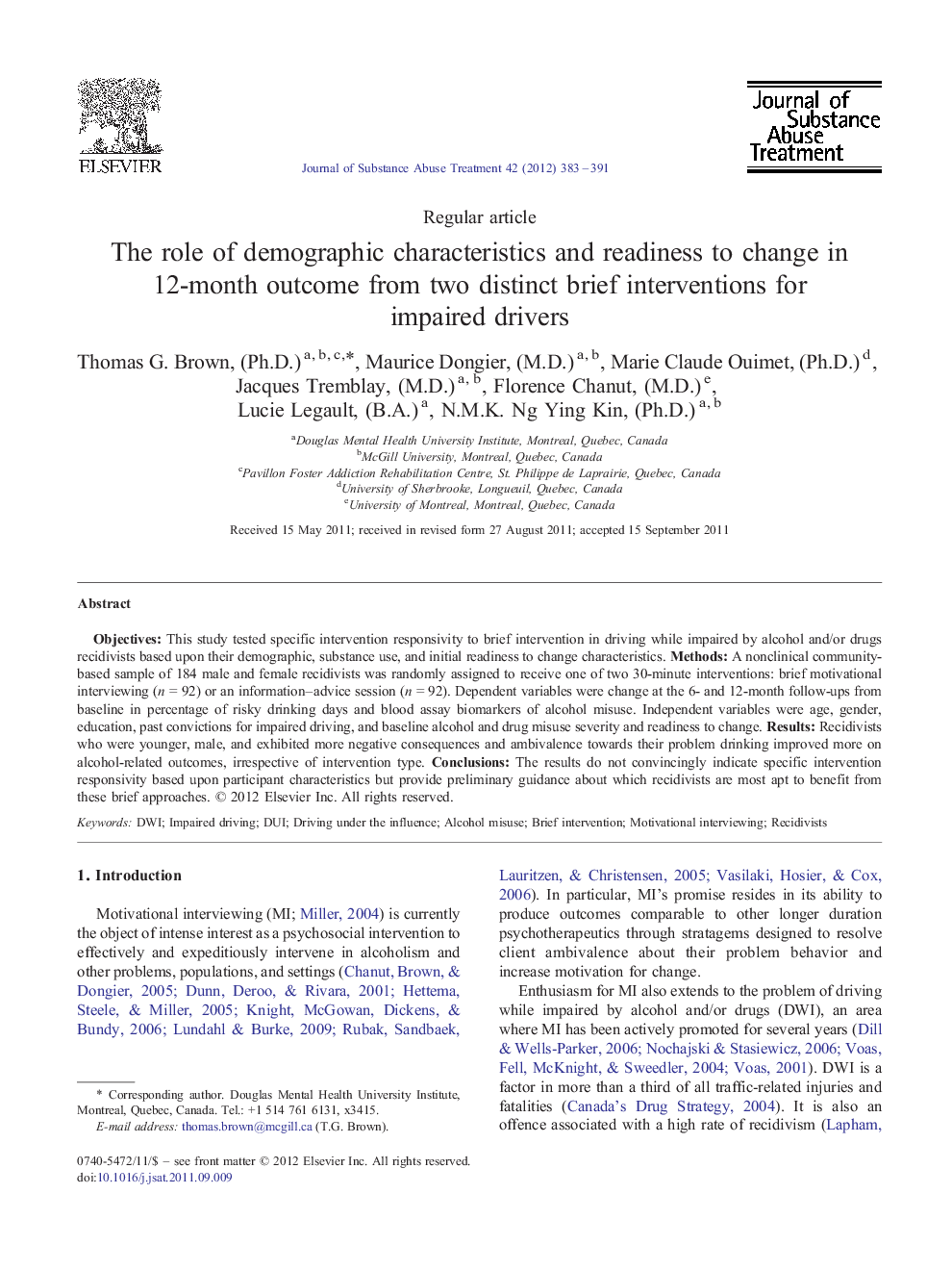| Article ID | Journal | Published Year | Pages | File Type |
|---|---|---|---|---|
| 328495 | Journal of Substance Abuse Treatment | 2012 | 9 Pages |
ObjectivesThis study tested specific intervention responsivity to brief intervention in driving while impaired by alcohol and/or drugs recidivists based upon their demographic, substance use, and initial readiness to change characteristics.MethodsA nonclinical community-based sample of 184 male and female recidivists was randomly assigned to receive one of two 30-minute interventions: brief motivational interviewing (n = 92) or an information–advice session (n = 92). Dependent variables were change at the 6- and 12-month follow-ups from baseline in percentage of risky drinking days and blood assay biomarkers of alcohol misuse. Independent variables were age, gender, education, past convictions for impaired driving, and baseline alcohol and drug misuse severity and readiness to change.ResultsRecidivists who were younger, male, and exhibited more negative consequences and ambivalence towards their problem drinking improved more on alcohol-related outcomes, irrespective of intervention type.ConclusionsThe results do not convincingly indicate specific intervention responsivity based upon participant characteristics but provide preliminary guidance about which recidivists are most apt to benefit from these brief approaches.
